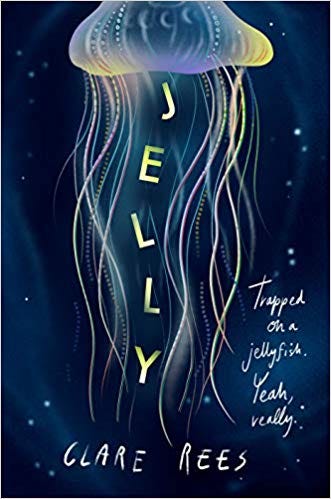It was a work-avoiding youtube wormhole. I can’t now remember what work it was that I was trying so hard not to do- marking, cleaning, lesson-planning maybe- but I was definitely being successful. I’d probably started off on a comedy cat video, but somehow, within a few clicks I’d ended up watching highlights from a Trump supporter rally. I can still remember that ‘don’t click you’ll only hate yourself’ feeling but, meh, why else do you watch youtube? I clicked.
A MAGA cap-wearing man was standing facing the camera with a stadium of flag-waving people behind him. Everything he said elicited cheers from the crowd, and all of his statements were short. It was the usual series of vague promises I think- but then he started to talk about climate change. And unusually, he was fully prepared to concede that climate change was real. It was at this point that I started to pay attention properly. Not only was it real and happening he admitted, but it was A GOOD THING (cheers from the crowd). It was happening in America right now he told them, and that’s fine, because it had already happened before in the Bible (more cheers. Lots of flag-waving).
In the Bible, he reminded us, God had razed whole cities to the ground due to their immoral behaviour. The MAGA speaker was, of course, specific and strangely enthusiastic about what that behaviour was, but I can no longer recall the details (indeed, as I’m writing this during lockdown, it just makes me feel jealous). God had also made sea levels rise before (cheers). Yes, sea levels rising was nothing new, the speaker reassured the crowd, because Noah and his family had faced that exact challenge. God had made sea levels rise in the past as a way of washing the earth of sin, and getting rid of all of the sinners (epic cheers). He finished by reassuring the crowd that America was ready for climate change, sea levels rising, and it would be fine because God would take care of them, just as he had taken care of Noah in the Bible.
It wasn’t so much rage I felt, as absolute shock. I couldn’t believe there was somewhere people genuinely thought a Noah’s ark situation might be a good one for humanity or the world. I can only assume the stadium, and the speaker, were quite a long way inland, and maybe somewhere mountainous. I’d never met anybody like that and was shocked that so many people obviously thought drowning billions of people was a sensible idea- or were confident that they’d be some of the ones to survive. I spent a couple of days muttering to myself when stopped at traffic lights, or when pushing the trolley round the supermarket, but then- and I get that this is how conspiracy theories/ extremism work- I started wondering whether maybe it had really happened before. Whether the MAGA man could be right, and if Noah’s ark could possibly be true.
It was a short skip from that to writing a book about a group of people trapped on top of a giant, killer, jellyfish following sea levels rising (plus, maybe, a couple of other missing stages). Jelly’s take on Climate Fiction is deliberately silly and bizarre- but then so was MAGA man’s. I think it’s important to explore our climate change future by looking at the possibilities in a range of different ways, and sometimes we can consider change the best when looking at things through absurdities. I also don’t think a climate change future is entirely bleak, because that’s not how humans work.
Gallows humour is a key feature of some very important books:
· The Decameron- frame narrative is set in the black death
· A Modest Proposal- satire about the poverty in Ireland
· Candide- includes the Seven Years War and the Lisbon earthquake
· Catch 22 (and so many other war satires, including Blackadder)
In the coronavirus nightmare we’re currently living, humour has been a coping strategy for many. I think humour is going to be a key feature of how we deal with climate change- as it is a key feature of how humanity has always approached negative situations. Gallows humour has been what has got many of us through the past year and, yes, if there ever was actually a zombie invasion, my survival plan does include a couple of dad jokes (What do vegan zombies eat? GRAAAIIIINNS. Where in the house is the best place to hide from a zombie? The living room).
What MAGA man and his youtube clip of horror did remind me, is that we as humans always deal with situations differently- both in terms of our reactions to them, and also in our solutions. We can see that right now in the way different countries have dealt with the current pandemic, or even in people’s differing attitudes to whether the vaccine is a good thing or not. I think books offer us a safe way of exploring those possible futures and solutions without having to actually deal with them- which is why I think Climate Fiction is particularly important.
Despite coronavirus, it’s climate change that is probably the most important issue of our lives, and the lives of future generations. And if we’re at the stage now where even radical Trump supporters can fill stadiums by talking about it, then it’s a pivotal concern even to groups who have previously denied its existence. Hopefully it won’t result in mythological sea monsters rising from the deepest parts of the ocean with the intention of killing us all, but it is unlikely that the experience will be as good as MAGA man and his supporters hope.
Books obviously won’t prevent ecological disaster, but they will help us think about it and explore both the human consequences and strategies for survival. Some of that survival will depend on being able to see humour and absurdity in the world because, for some people, that’s a way of coping with disaster.
So, why are sea levels getting higher? Because the sea weed.
You can find out more about Jelly here. This article originally ran in the newsletter in 2021.
CLARE REES is the Head of English in a Berkshire school. She has enjoyed a varied career so far, including spending two years teaching in Ethiopia and seven years in inner London comprehensives. She loves working with teenagers and is particularly keen on the aspects of her job which involve the promotion of reading and writing for pleasure. She has a particular interest in, and has carried out research into, the development of literacy skills across the curriculum.
Virtual Workshop - Weaving climate change themes into fiction
Join Climate League founder Lauren James and learn how to weave climate themes into your storytelling with two YA authors from Walker Books. Climate consultant Lauren James will break down a scene from Sara Barnard’s writing to show how climate change can be incorporated naturally into scenes.
This session will allow publishing professionals to see first-hand the process an editor and author would go through when focussing on ‘climate sensitivity’, as well as Sara responding to the editorial suggestions in the moment.





